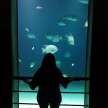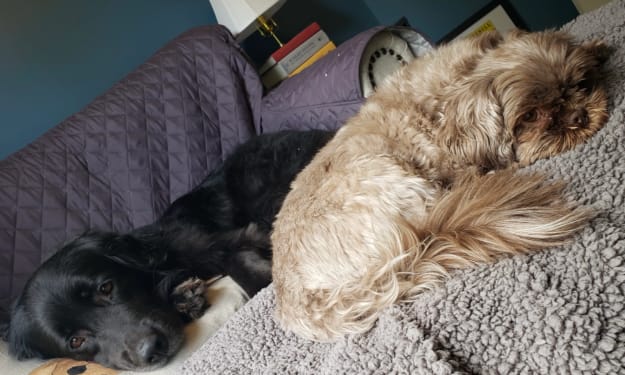
Many people hate having their food touch, touching dirty plates, or finding things in their food. Many of those same people might not realize that they are suffering from one or both of the phobias called brumotactillophobia (fear of food touching) and mysophobia (fear of contamination).
Now I am in no way a psychologist, but I do know a lot about the phobias and mental illnesses that I personally suffer from and where they stemmed from in my life.
When I was young, I was a picky eater, but I didn't have mini-meltdowns over food touching or finding a cat hair in my pasta. The older I got and the more life-altering events I went through, the more I would freak out over food touching and finding a dirty spot on my fork.
Most people would send their food back and get a new dish if it was made wrong or if they found something in it, but I couldn't bring myself to even eat any more. The feeling of touching whatever was on my plate or silverware or in my food would resonate on my skin and disgust me to the point where if I touched something else, I felt like I was transferring the thing I touched to whatever else I was touching.
I began to notice that whenever something horrible would happen in my life, I would start to react worse to these food related things. After a while, I had finally accepted that there was definitely something wrong and began to look in to why I react so poorly to my food touching or to finding something in my food.
I started by looking into different types of OCD relating to food, which lead me to asking my former therapist about phobias involving food. She looked into it for me and brought back a few different phobias and OCD conditions that could be my problem. Two of these things were mysophobia and brumotactillophobia.
I learned that mysophobia is an extreme form of germaphobia, which is a typical form of OCD, and that brumotactillophobia is a mild form of OCD. I also learned that not a lot of people know what these are and what causes them.
OCD is typically a response to stress and is very common in people who's families have a history of anxiety and depression. It also comes in many forms, but people tend to focus more on the forms of OCD that involve organization and numbers.
Learning that both of my phobias are different forms of OCD helped me understand why I suffer from them.
Ever since I was very very young, I have suffered from severe social anxiety and seasonal depression, and so does a lot of my father's side of the family. My mental illnesses only got worse thanks to being separated from my father for ten years after growing up being very close to him, not having a good relationship with my mother for a long time, moving fairly often, and losing my uncle to suicide at the age of eight.
As I got older and suffered through these things, I would get more and more affected by my food touching, which soon bloomed into me also not being able to touch dirty dishes to wash them, which then further bloomed into me not even being able to look at someone else while they eat. I never linked my problems with food to the things going on in my life, so I was never able to do anything to help myself get better since I basically wasn't accepting the problem.
I eventually came to the conclusion that forming these phobias was my brain's way of coping with the loss of my uncle and not being able to see my dad. While the events I went through caused me to mature faster than most kids, they definitely did not help me develop ways of coping, so my brain's response was to give me other things to worry about so I would be distracted from the bigger problems at hand.
Once I began to accept my problem and finally was able to move in with my dad, I was able to begin helping myself get better. I gradually pushed myself to let some, but definitely not all, food touch, do the dishes more often, and interact more with other people while eating. These things took a very, very long time to do, and in all honestly, I'm still not doing extremely well at them, but I'm making some progress, and that's what really matters. Some progress is the biggest step someone who has been suffering from something for a very long time can make.
While these things may seem very redundant to some, they were huge steps for me because in turn, my anxiety and OCD began to get better and slightly easier to deal with in the long run.
My journey to learning to heal myself started with accepting that there was something wrong and actually looking into it, then connecting the dots between my phobias and traumatic experiences, and then finally pushing myself to face my fears.
While you might not think this relates to you, trust me, it very well could. My journey is fairly similar to how many people begin their healing process whether it be with anxiety, depression, OCD, PTSD, or losing a loved one.
Accepting is the main part of learning to help yourself.
About the Creator
Haley D
New England girl navigating her way through a Southern Art School.
Life experiences are the greatest knowledge one can have, so here are mine.






Comments
There are no comments for this story
Be the first to respond and start the conversation.